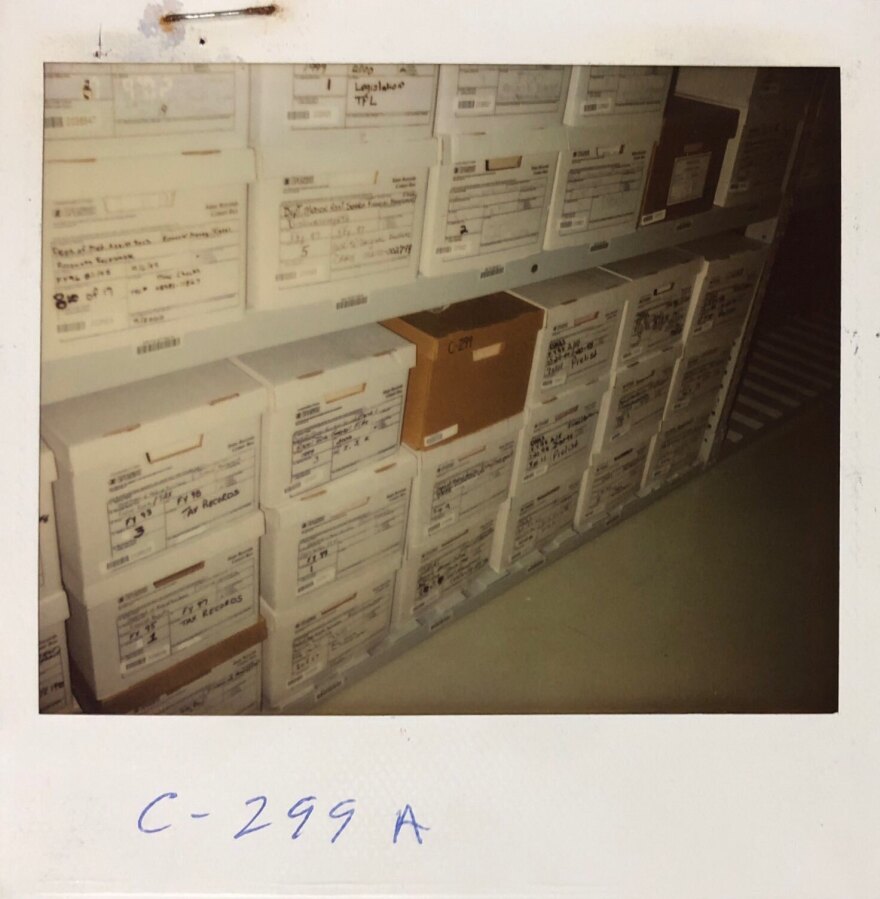Language in the state budget proposal directs the Virginia State Crime Commission to inspect all the case files of former state forensic lab analyst Mary Jane Burton to determine the number of her cases that resulted in convictions, executions, exonerations and more. The commission’s then directed to report its findings back to lawmakers.
A VPM podcast led to the state-mandated review. “Admissible: Shreds of Evidence” questioned the accuracy of Burton’s lab analyses, which led to a state review of allegations made in the show and a recommendation to alert all parties in criminal cases Burton was involved with.
Individuals convicted, at least in-part, due to Burton’s work will also be notified that evidence in their cases could be eligible for retesting. The Innocence Project at UVA School of Law will spearhead a lawyer coalition to field questions from those still incarcerated — and could also possibly represent them.
It’s estimated that about 100 people are still incarcerated from cases Burton worked on during the 1970s and ’80s, though that number could change as the case reviews progress.
“We think right now we've got 108 individuals that Mary Jane Burton either handled their case where they're incarcerated or handled a case before they were incarcerated,” said Amy Jenkins, attorney for the Virginia Department of Forensic Science, during a Monday presentation about the project. “So, we need to work through that list to determine if they're being held on the Burton case.”
There’s already a plan describing the case review work to be done: Virginia State Crime Commission staff will analyze the files for identifiable personal details that will help confirm whether someone is still incarcerated. Staff will then work with other agencies to locate and notify the person that evidence in their case — if it still exists — could be eligible for retesting.
Virginia Department of Forensic Science staff have already begun pulling Burton’s case files for crime commission staff to review, and the Mid-Atlantic Innocence Project will help review and confirm the executions and exonerations.
It still hasn’t been worked out whether — and if so, how — to notify family members of those executed, exonerated or deceased, as well as what to do in cases when it’s been determined no evidence still exists.

State Sen. Scott Surovell worked with the crime commission to draft the budget language mandating the Burton case review after hearing allegations of her poor work quality on the “Admissible” podcast.
"Now that we know what really happened with Mary Jane Burton's cases, it's very important that we take whatever steps we can to not only make sure this never happens again, but to help make amends for what occurred — because it's completely unacceptable in our system of justice,” Surovell told VPM News.
He said the budget language aims to pinpoint how many cases Burton worked on in order to get a sense of the problem’s scope. He also wants “to figure out where there might be cases where we might be able to test some stuff to figure out if somebody was wrongfully accused.”
During Monday’s presentation about the review, Jenkins pointed out how the forensic science department is already addressing some specific criticisms the “Admissible” podcast raised about the Virginia Post-Conviction DNA Testing Program from the early 2000s. For example, volunteer attorneys who were part of that review were told they couldn’t represent people in the cases they reviewed.
“I don't see any reason why that would need to be the case [here],” Jenkins said. “If they feel that there's something that could be filed to assist that individual, getting it taken care of as soon as possible is what we want to do.”
A state scientific advisory panel has also signed off on language for notification letters to be sent to people who’ve been convicted — as well as Commonwealth’s Attorneys and Sheriff’s departments. Another “Admissible” criticism was that language in the letters sent to people through the post-conviction DNA testing program was sometimes frightening or confusing.
“I tried to keep this as simple as I could,” Jenkins said.
But it could take some time before new notification letters are sent to everyone convicted, because they have to be located first. That’s why letters will soon go out to all Virginia inmates via Virginia Department of Corrections digital devices alerting them of the case review to try to help ensure no cases are missed.
Another set of letters will also be sent to Commonwealth’s Attorneys and Sheriff’s departments next month — so they can help determine which of Burton’s cases resulted in convictions and to ensure that any evidence still in existence isn’t destroyed. The letter asks these agencies to search for any evidence held by local courts or law enforcement agencies that could be tested.
Kristen Howard, the crime commission’s executive director, said during Monday’s presentation it will be a time-consuming process “because we want to make sure that we do it well and do it accurately.”
Sarah Chu, formerly with the Innocence Project and now Director of Policy & Reform at Perlmutter Center for Legal Justice, praised those involved with this project for being “responsive to past concerns — and being explicit about it” every step of the way.
“I think that demonstrates your interest in continuous improvement and maintaining public trust,” Chu said Monday. “The transparency of this process and the inclusion of other constituents in the system is also part of maintaining and continuing to build public trust. I think that this process is a lesson to other states.”



